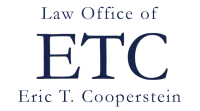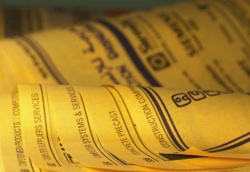 Running a successful law practice is all about getting clients. One way is by building a referral network, a frequent topic on Lawyerist. Another way is by advertising, such as in the yellow pages.
Running a successful law practice is all about getting clients. One way is by building a referral network, a frequent topic on Lawyerist. Another way is by advertising, such as in the yellow pages.
As traditional advertising methods wane, lawyers are getting excited by new methods of attracting clients through the internet. All those potential clients out there, yearning to find the lawyer of their dreams — all they need is a little encouragement. A little channelling. A system of connecting clients with lawyers. And lawyers will be eager to pay to have pre-screened clients sent their way – as long as they do not violate any ethics rules.

 There is a good deal of postulating in the blogosphere about the types of ethical trouble a lawyer can get into by using social media. The nattering nabobs of negativism warn us to be careful when using social media like Facebook or Twitter, lest we unwittingly disclose client confidences, improperly solicit new clients, or misrepresent facts or law.
There is a good deal of postulating in the blogosphere about the types of ethical trouble a lawyer can get into by using social media. The nattering nabobs of negativism warn us to be careful when using social media like Facebook or Twitter, lest we unwittingly disclose client confidences, improperly solicit new clients, or misrepresent facts or law. It is probably fair to say that most lawyers have grown accustomed to the convenience of emailing clients. Less disruptive than phone calls, more efficient, creates documentation of conversations—hard to believe anyone could ever practice law without email. From an ethics perspective…
It is probably fair to say that most lawyers have grown accustomed to the convenience of emailing clients. Less disruptive than phone calls, more efficient, creates documentation of conversations—hard to believe anyone could ever practice law without email. From an ethics perspective… Within recent days two states – Maine and Alabama– have turned back restrictive lawyer advertising proposals (first heard from the ABA’s Will Hornsby,
Within recent days two states – Maine and Alabama– have turned back restrictive lawyer advertising proposals (first heard from the ABA’s Will Hornsby,  The Massachusetts Supreme Judicial Court gave a boost to on-line legal education (and declined to bow down to the ABA) recently when it allowed a graduate of Concord Law School, an entirely on-line law school owned by Kaplan, Inc., to sit for the Massachusetts Bar Exam, despite a state rule that prohibits graduates from unaccredited law schools from taking the exam. The decision is available
The Massachusetts Supreme Judicial Court gave a boost to on-line legal education (and declined to bow down to the ABA) recently when it allowed a graduate of Concord Law School, an entirely on-line law school owned by Kaplan, Inc., to sit for the Massachusetts Bar Exam, despite a state rule that prohibits graduates from unaccredited law schools from taking the exam. The decision is available  Maine has become the latest state to take sides in the grudge match over whether it is ethical for lawyers to search electronic documents for metadata hidden beneath the bytes. Maine says no, joining New York (both the state and county bars), Florida, Alabama, and Arizona. The ABA (Formal Op. 06-442), Maryland, Colorado, and D.C. place the heavier burden on the party creating or sending the electronic document and permit recipient lawyers to search at will. Pennsylvania sort of punted.
Maine has become the latest state to take sides in the grudge match over whether it is ethical for lawyers to search electronic documents for metadata hidden beneath the bytes. Maine says no, joining New York (both the state and county bars), Florida, Alabama, and Arizona. The ABA (Formal Op. 06-442), Maryland, Colorado, and D.C. place the heavier burden on the party creating or sending the electronic document and permit recipient lawyers to search at will. Pennsylvania sort of punted.